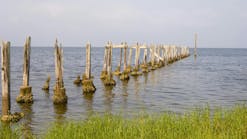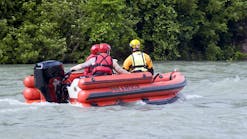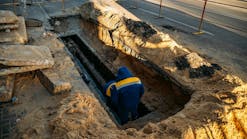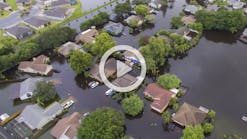In an effort to keep swimming areas along the beach clean and safe, governments are spending millions of dollars to move storm water further off the shore of South Carolina.
According to a report on MyrtleBeachOnline.com, large drainage pipes used to dump run-off from rain storms onto beaches and into the shallow water near shore where most people swim.
In the past five years, about a third of the 150 pipes along the Grand Strand have been removed and seven longer pipes installed to take the storm water about a quarter-mile off shore where it has a better chance of being diluted before it comes into contact with swimmers.
The work so far has cost $40 million in government money and it's unclear whether the method will actually provide cleaner swimming water and that it won't hurt fish and other marine life.
"We're hopeful this will solve all of our beachfront water-quality problems and reduce the number of advisories we have to issue," said Fred Earnhardt, a state health department regulator. "We've seen that already in North Myrtle Beach."
In years past, signs warning of pollution dangers popped up following heavy rains. The rainwater gets polluted as it runs across parking lots and other public areas and picks up contaminates such as oil and animal waste. It then was dumped on the beach by the large drain pipes.
Joe Bennett, who oversees ocean water testing for Horry County cities, said removing the pipe at Seventh Avenue South has improved beach water quality.
And that is important for the Grand Strand, which lives off the number of visitors to the area each year. The pollutants that wash onto the beach from the large pipes can make people sick - upset stomachs for the waders and head colds and sore throats for more adventurous swimmers.
In 2004, the state found bacteria levels above safe-swimming standards on 15 of 39 days tested at Seventh Avenue before the drain pipe was removed. The poor water quality resulted in eight advisories against swimming in that summer.
The process is expensive, however.
North Myrtle Beach is using a special storm-water fee to pay the $15 million to add long pipes and remove beach drains, said city engineer Kevin Blayton.
A little to the south, Myrtle Beach is looking for other sources of money to install more offshore pipes in the future. That city is spending about $23 million, public works chief Ron Andrews said.
"We are driven by a desire not to have the bad image of contaminated water," public works head Andrews said.
Source: MBO






